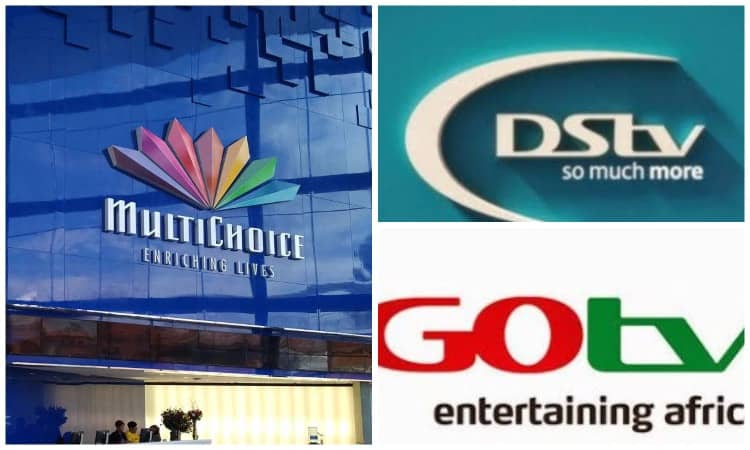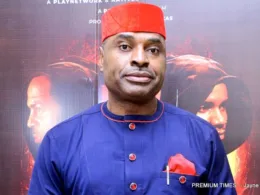Multichoice Nigeria Limited, one of Nigeria’s largest Pay-TV providers, has called on the Federal High Court in Abuja to dismiss an application seeking to force the company to implement a Pay-Per-View (PPV) model for its GOtv and DStv services.
The legal challenge, brought forward by Maduabuchi O. Idam, Esq., in case number: FHC/ABJ/CS/563/2024, also seeks an order compelling the company to roll over unused subscriptions upon expiration for Nigerian customers.
Idam, representing both himself and other consumers, argues that the current subscription model is exploitative, as it forces customers to pay for services they don’t fully use, while price hikes further undermine the value of the services provided.
This case has attracted considerable attention, not just from consumers, but also from lawmakers and regulators. In addition to Multichoice, the suit also names the Federal Competition and Consumer Protection Commission (FCCPC), the National Broadcasting Commission (NBC), the Attorney General of the Federation, and the Minister for Justice as defendants. Over the years, Multichoice has been the subject of numerous complaints and investigations into its pricing and service delivery practices in Nigeria.
Background of the Case: Consumer Complaints Against Multichoice
At the heart of Idam’s lawsuit is the argument that Multichoice’s GOtv and DStv services are not metered to reflect actual viewing time. Unlike Pay-Per-View (PPV) models, where customers are charged only for what they watch, Multichoice’s services operate on a subscription basis. Under this model, customers must pay for a fixed period (e.g., one month) and are disconnected when their subscription expires, regardless of whether or not they have watched any content during that period.
Idam contends that this practice forces customers to pay for services they do not use, especially when circumstances prevent them from watching their subscribed content. He believes this practice is unfair, particularly given the economic challenges many Nigerians face. Idam is also challenging what he describes as arbitrary price hikes by Multichoice, which, he claims, occur without sufficient explanation or justification.
For example, Multichoice announced price increases for its DStv and GOtv packages in May 2024, following a series of similar hikes in previous years. Idam argues that these price increases make it difficult for Nigerian consumers to fully utilize the services they pay for, and he is calling for the court to mandate that unused subscriptions be rolled over when a customer renews their service.
In his filing, Idam asserts that Multichoice’s pricing practices violate the Federal Competition and Consumer Protection Act, 2018, which seeks to protect consumers from unfair and exploitative trade practices. He believes that unless the court intervenes, Multichoice will continue to take advantage of Nigerian consumers, leaving them vulnerable to its arbitrary pricing and subscription policies.
Multichoice’s Defense: Technical and Commercial Viability
Multichoice has strongly objected to the claims made by Idam. Gozie Onumonu, Head of Regulatory Affairs and Government Relations at Multichoice, argued in court documents that the company provides clear and transparent billing information to its customers. He pointed out that all receipts show the payment date, the duration of the subscription, the amount paid, and the validity period of the subscription. This transparency, according to Multichoice, ensures that consumers are fully informed about what they are paying for.
Furthermore, Onumonu addressed the technical challenges of implementing a Pay-Per-View (PPV) or Pay-As-You-Go (PAYG) model for satellite broadcasting services like GOtv and DStv. He explained that Pay-Per-View, as it is understood by many customers, is often confused with the Pay-As-You-Go (PAYG) model used by mobile telecommunications companies.
In the telecom industry, the PAYG model allows customers to be charged only for the services they use, with the system being able to track when a user is connected, what services they are consuming, and for how long.
However, Onumonu noted that satellite broadcasting operates differently. Satellite television services are delivered through a one-way communication system, where the signal is sent from a satellite to the customer’s decoder.
Unlike telecom services, there is no “return path” that allows the broadcaster to monitor the customer’s usage in real-time. As a result, it is not technically feasible for satellite broadcasters to implement a true PAYG model, where customers are billed only for the time they spend watching TV.
Onumonu also pointed out that the Nigerian National Assembly has previously investigated the feasibility of implementing PAYG for Pay-TV services. During these investigations, it was determined that the model is not commercially or technically viable in the broadcasting industry, due to the linear nature of satellite broadcasting.
He cited the findings of the 8th Assembly’s House Committee on Information, National Orientation, Ethics and Values, led by Hon. Olusegun Odebunmi, which concluded that allegations of exorbitant Pay-TV subscription charges against Multichoice were unsubstantiated and that a PAYG model for satellite broadcasting was impractical.
Economic Realities: Multichoice Justifies Price Increases
Beyond the technical challenges, Multichoice has also defended its pricing decisions, pointing to the difficult economic environment in Nigeria. According to Onumonu, several factors have contributed to the company’s need to increase subscription fees.
Firstly, he cited exchange rate fluctuations as a significant challenge. Inflation in Nigeria has steadily increased, with the headline inflation rate reaching 33.20% in 2024, up from 28.20% earlier in the year. These inflationary pressures have significantly raised the cost of doing business in Nigeria, affecting both local and foreign input costs. Multichoice, as a major investor in Nigeria’s entertainment industry, has struggled to maintain subscription prices in the face of these rising costs.
Secondly, Onumonu highlighted the increasing costs of content and programming. Over the past decade, the cost of acquiring and producing television content has risen dramatically, both in Africa and globally.
Multichoice has made significant investments in creating and sourcing content for its platforms, including DStv, GOtv, M-Net, SuperSport, and Africa Magic. The company has spent more than $514 million developing local talent and content in Nigeria, including building state-of-the-art production studios in Ilupeju, Lagos. These content costs are passed on to consumers in the form of higher subscription fees, but Multichoice argues that the investments are necessary to maintain the quality and variety of its programming.
Thirdly, Onumonu pointed to recent increases in electricity tariffs as another factor driving up costs. The Nigerian Electricity Regulatory Commission (NERC) recently announced a 230% increase in electricity tariffs for Band A customers, which includes many companies.
This tariff hike has significantly increased the cost of powering Multichoice’s offices and transmission infrastructure, which are critical for maintaining uninterrupted service.
Court’s Decision Pending
The Federal High Court has scheduled a hearing for December 5, 2024, to deliberate on the legal dispute between Multichoice and Idam. The outcome of this case could have significant implications for the Pay-TV industry in Nigeria, especially if the court rules in favor of compelling Multichoice to adopt a Pay-Per-View model or roll over unused subscriptions. Such a decision could set a precedent for other Pay-TV providers in the country, who may be forced to reassess their pricing models.
In the meantime, the case follows a previous ruling by the Nigerian Competition and Consumer Protection Tribunal in July 2024. In that case, the tribunal granted lawyer Festus Onifade’s request to withdraw a suit challenging Multichoice’s price hikes. Initially, the tribunal had fined Multichoice 150 million naira and ordered a one-month free subscription for consumers, but Multichoice appealed the ruling and requested a stay of proceedings.
The December 2024 court hearing could pave the way for significant changes in how Pay-TV services are delivered in Nigeria, particularly if the court sides with Idam’s arguments in favor of Pay-Per-View billing and rolling over unused subscriptions.










Join our Channel...